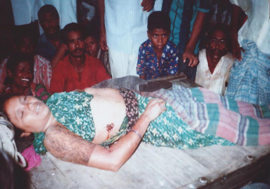Education
The Constitution of Bangladesh guarantees free education to every citizen but a large section of the population are deprived of this right. We believe education is a catalyst to social transformation and tackling this inequality is central to our mission. Our education programme began in 1985 with the establishment of a secondary school. At present…



